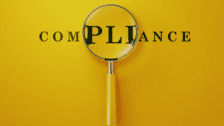Sophisticated investor test draws scrutiny in financial services inquiry
Qualifying as a ‘sophisticated investor’ entitles an individual to access financial products and markets that would otherwise be considered too risky or complex for non-professionals. But the test for determining who is sophisticated is coming under scrutiny, as stakeholders argue it needs an update.
The distinction between retail investors and those deemed sophisticated and thus treated like wholesale investors has also caused “considerable confusion” in the context of self-managed superannuation funds (SMSFs), which are considered retail securities, according to the Australian Law Reform Commission (ALRC). This has made SMSFs “misfits” within the existing legislative framework.
The ALRC addressed the sophisticated investor test in a recent paper discussing the legal and regulatory context for superannuation, the penultimate of 12 background papers the independent statutory body is producing in its review of the legislative framework for financial services.
“Any reform to the legislative framework governing financial services and financial products warrants a consideration of how such reform might affect the superannuation sector, given its role in Australia’s financial system,” the ALRC said.
“There is significant complexity in the legislative framework governing superannuation. A more adaptive, efficient and navigable framework in financial services legislation generally should benefit the superannuation industry.”
Complex interplay of laws
The superannuation system involves an “intricate and diverse range of funds, products and administrative structures,” the ALRC noted, and key distinctions are not neatly set out in legislation. This has led to confusion as stakeholders are required to navigate the interplay of key laws – in particular, Chapter 7 of the Corporations Act 2001, and the Superannuation Industry (Supervision) Act 1993 (SIS Act) – that don’t always match perfectly.
To qualify as a sophisticated investor, an individual must obtain an accountant’s certificate stating that they’ve earned at least $250,000 in income in each of the two preceding financial years or that they have net assets exceeding $2.5 million – and that can include the family home, and net assets or gross income from any companies they control.
When a financial service is provided to a retail client, it triggers a range of obligations around disclosure and conduct. The Corporations Act also empowers ASIC to make product intervention orders to protect retail clients, and providers of personal advice to retail clients face additional professional and ethical standards.
“There is a complicated and nuanced relationship that exists between the different sources of law in the superannuation context,” the ALRC said. “As a result, certain conduct can attract liability under multiple sources of law.”
Some of the complexity stems from the way superannuation “straddles the concepts of financial product and a financial service”, which highlights a “lack of coherence” between the Corporations Act and the SIS Act, it said.
Section 761G(6) of the Corporations Act states that superannuation products and services are deemed provided to a person as a retail client, and it defines a wholesale client as the opposite of a retail client. This has led to criticism from stakeholders who say it is anomalous to require financial services providers to treat the same client as retail in a super context but as wholesale in the context of their other investments.
Moreover, it is “difficult to fit certain classes of superannuation funds and investments within the existing legislative framework, resulting in ‘misfits’,” the ALRC said, pointing to SMSFs. What constitutes a financial product in the SMSF context has also long been controversial.
Framework criticised as confusing, outdated
ASIC has acknowledged that “legal uncertainty – particularly in relation to an issue as important as whether clients should receive the benefit of the retail client consumer protections – is undesirable and supports a review of the test to ensure that it is both clear and appropriate.”
The test levels, which were first introduced in 2002, are not indexed to inflation, so the eligibility figures are the same today as they were at a time when typical household income and asset levels were much lower. As a result, a large number of Australian households now potentially qualify as sophisticated investors based solely on the value of their family home.
The SMSF Association pointed out in a submission to the ALRC’s inquiry that the framework for wholesale investor tests “needs urgent review and reform”, arguing that the complexity of the current setup may be triggering an increased use of the wholesale investor regime and that the test has become outdated.
“The asset and income thresholds for the sophisticated investor test have remained frozen in time and unchanged since 2001,” SMSF Association CEO Peter Burgess told The Inside Investor. “Given the effects of inflation and the increases in asset values over that time, the $2.5 million asset threshold may no longer be appropriate.”
*This article was first published in The Inside Investor.











